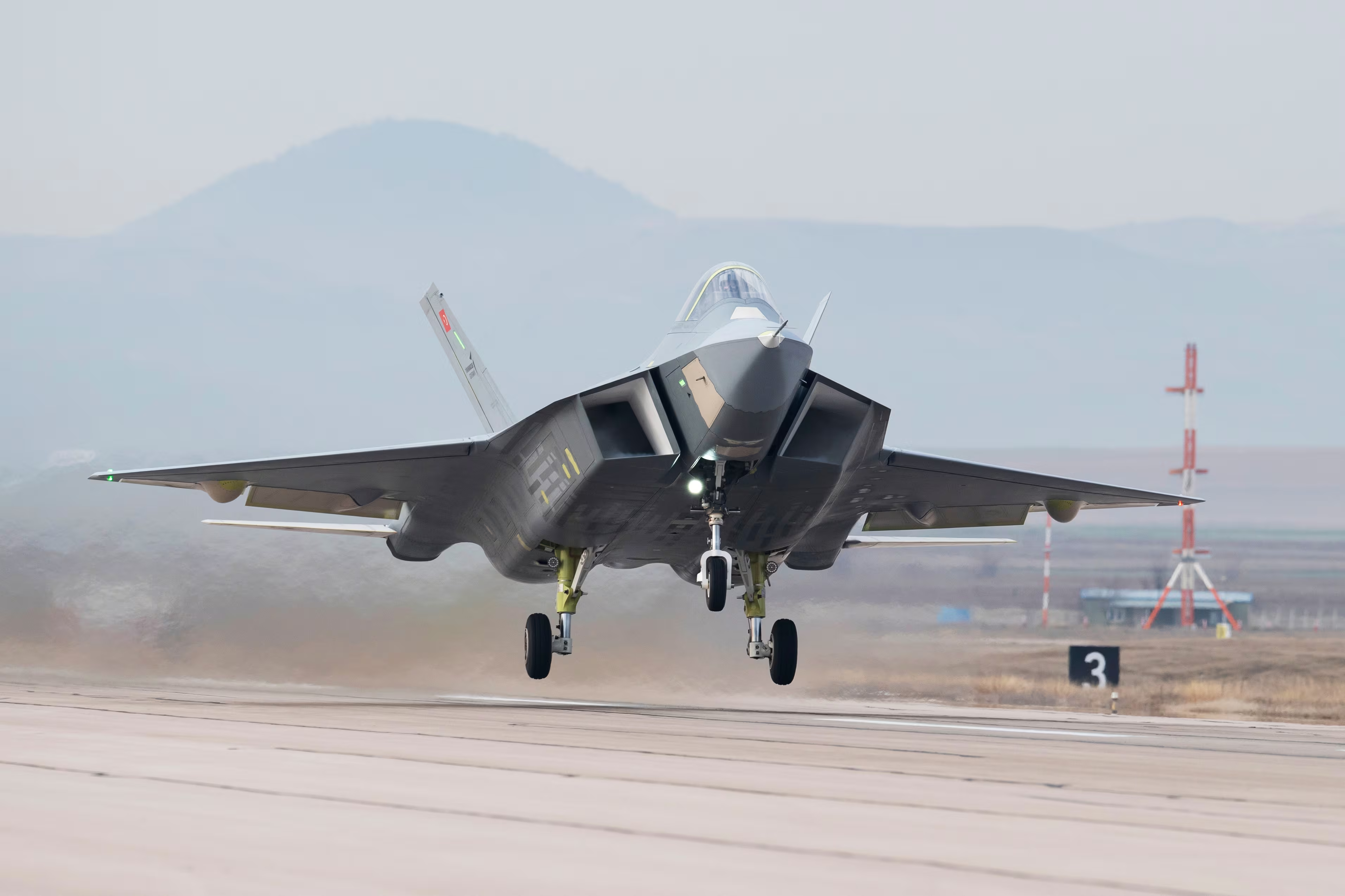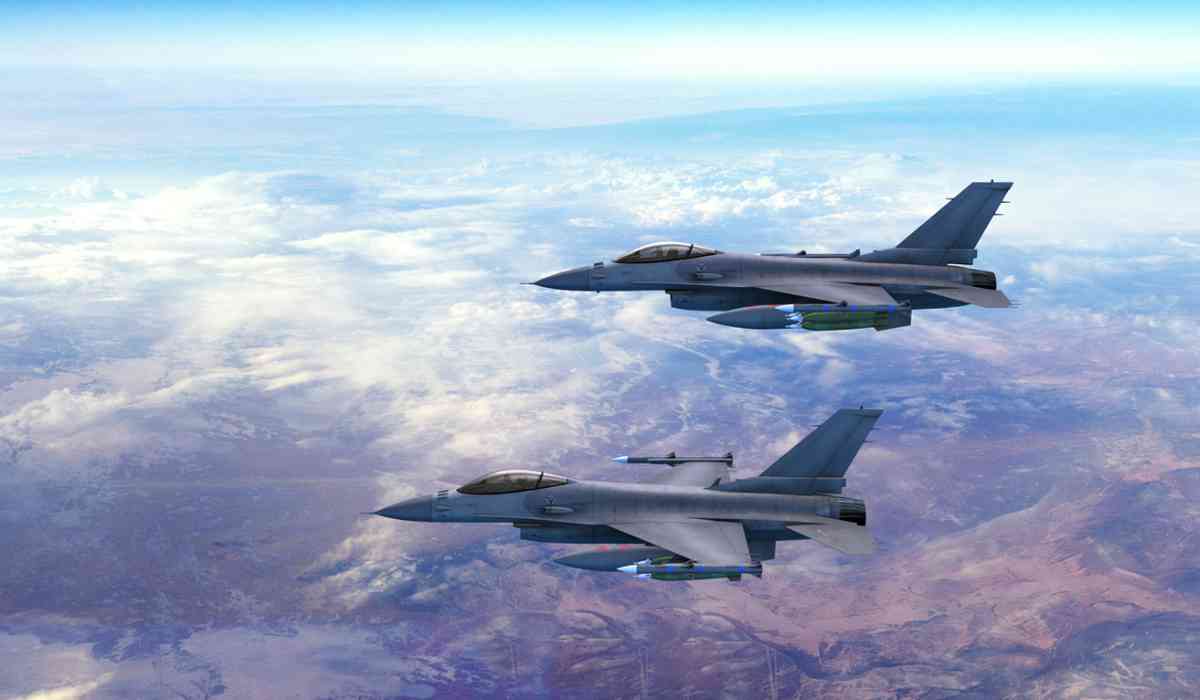The U.S. aerospace and defense industry is more than just a cornerstone of national security—it's a vital economic engine and a key player in global technological leadership. With the United States leading global defense spending, its top aerospace contractors are not only securing borders but also propelling advancements in AI, space systems, cybersecurity, and autonomous technologies.
In a time of rising geopolitical tensions, these aerospace giants are thriving by delivering cutting-edge solutions to complex defense challenges.

Top 10 Aerospace Companies in the US
10. Amentum
Headquarters: Chantilly, Virginia
Defense Revenue: $5.7 Billion
Amentum is a trusted name when it comes to engineering, logistics, and mission support for federal clients, particularly the Department of Defense (DoD). Its comprehensive offerings cover:
-
Nuclear operations management
-
Cybersecurity
-
Advanced logistics solutions
Amentum’s growing defense revenue reflects its expanding footprint across federal missions, including classified operations and defense technology modernization.
9. Booz Allen Hamilton
Headquarters: McLean, Virginia
Defense Revenue: $6.8 Billion
Known for combining consulting expertise with deep technological capabilities, Booz Allen Hamilton is a powerhouse in:
-
Artificial Intelligence (AI) integration
-
Cyber defense
-
Mission-critical IT infrastructure
Its diversified portfolio, strong cash flow, and focus on digital transformation in defense make Booz Allen a top-tier government contractor, especially amid increasing cyber threats.
8. Leidos
Headquarters: Reston, Virginia
Defense Revenue: $11.1 Billion
Leidos brings IT solutions to the front lines, offering essential services to both defense and civilian agencies. Its core strengths include:
-
Cybersecurity and AI analytics
-
Autonomous and unmanned systems
-
Cloud modernization and digital infrastructure
Notable Contracts:
-
Advanced Battle Management System (ABMS)
-
F-16 weapon system engineering
With consistent year-over-year revenue growth, Leidos continues to prove its agility and scalability in mission-critical environments.
7. HII (Huntington Ingalls Industries)
Headquarters: Newport News, Virginia
Defense Revenue: $11.4 Billion
As the sole builder of U.S. Navy aircraft carriers, HII is unmatched in naval shipbuilding. Beyond its traditional strength, the company has expanded into:
-
Nuclear-powered submarines
-
Unmanned Underwater Vehicles (UUVs)
-
Naval cybersecurity
Its long-term naval contracts and shift toward autonomous maritime capabilities position HII as an essential asset in strengthening U.S. maritime dominance.
6. L3Harris Technologies
Headquarters: Melbourne, Florida
Defense Revenue: $15.6 Billion
L3Harris delivers next-generation communication and electronic warfare systems. Its recent innovations and acquisitions underscore its tech-forward strategy.
Core Offerings:
-
Tactical radios and data links
-
Electronic jamming and signal intelligence
-
Satellite communications and navigation
Major Milestones:
-
Contract for Glide Phase Interceptor development
-
Acquisition of Aerojet Rocketdyne, expanding its space propulsion capabilities
Its focus on cost efficiency and margin expansion bodes well for sustained growth in an evolving defense landscape.

5. Boeing Defense, Space & Security
Headquarters: Arlington, Virginia
Defense Revenue: $32.7 Billion
While Boeing is often recognized for its commercial aviation business, its defense arm remains a key pillar of the company’s portfolio.
Flagship Programs:
-
F-15EX Eagle II fighter jet
-
Satellite and space-based communication systems
-
KC-46 aerial refueling tanker
Despite recent struggles in its commercial sector, Boeing’s defense division continues to secure high-value contracts, solidifying its relevance in military aviation and space defense.
4. General Dynamics
Headquarters: Reston, Virginia
Defense Revenue: $33.7 Billion
General Dynamics is a diversified giant with operations across:
-
Combat vehicles (e.g., Abrams tanks, Stryker vehicles)
-
Submarine construction
-
Defense IT solutions through its GDIT arm
Its Gulfstream aerospace division, while largely civilian-focused, supports executive and government travel.
Recent Highlight:
Awarded a $188 million U.S. Navy contract for Virginia-class submarine support.
With profitability improving through margin gains and operational efficiency, General Dynamics remains a pillar of U.S. military manufacturing.
3. Northrop Grumman
Headquarters: Falls Church, Virginia
Defense Revenue: $35.2 Billion
Northrop Grumman has long been synonymous with strategic deterrence and space innovation.
Strategic Initiatives:
-
B-21 Raider stealth bomber program
-
Sentinel ICBM modernization
-
Missile production and international sales
Its growing backlog and global defense partnerships cement Northrop’s role as a critical player in future warfare systems and national security modernization.
2. RTX (formerly Raytheon Technologies)
Headquarters: Arlington, Virginia
Defense Revenue: $40.6 Billion
After its rebranding to RTX, the company streamlined operations while doubling down on advanced missile systems, integrated air defense, and sensor technology.
Key Programs:
-
Hypersonic weapon systems
-
Patriot air and missile defense systems
-
Next-gen radar and sensor platforms
RTX has also strategically restructured its portfolio through divestitures aimed at improving shareholder value and operational focus.
1. Lockheed Martin
Headquarters: Bethesda, Maryland
Defense Revenue: $64.7 Billion
With a commanding lead in defense revenue, Lockheed Martin continues to set the standard for aerospace excellence. It is the architect of some of the world’s most advanced defense programs.
Flagship Programs:
-
F-35 Lightning II, the world’s most advanced stealth fighter
-
Hypersonic Glide Vehicles (HGVs)
-
THAAD and Aegis missile defense systems
Strategic Move:
Acquired Terran Orbital in August 2024, strengthening its growing space division.
With a massive defense backlog and relentless focus on technological superiority, Lockheed Martin remains the undisputed leader in U.S. and global aerospace defense.
Final Thoughts: Investing in the Future of U.S. Defense
From next-gen aircraft and hypersonic weapons to cybersecurity and space exploration, these top aerospace and defense companies are not just responding to threats—they're actively shaping the future of global security.
Why This Matters:
-
National defense budgets are increasing worldwide, fueling demand for advanced military systems.
-
Tech innovation in AI, space, and autonomous systems is being driven by these very companies.
-
Many of these firms are publicly traded, offering investors an opportunity to capitalize on their long-term growth.
Whether you're a defense enthusiast, an investor, or simply interested in cutting-edge technology, these companies represent the nexus of innovation, strategy, and security.
With inputs from agencies
Image Source: Multiple agencies
© Copyright 2025. All Rights Reserved Powered by Vygr Media.





















